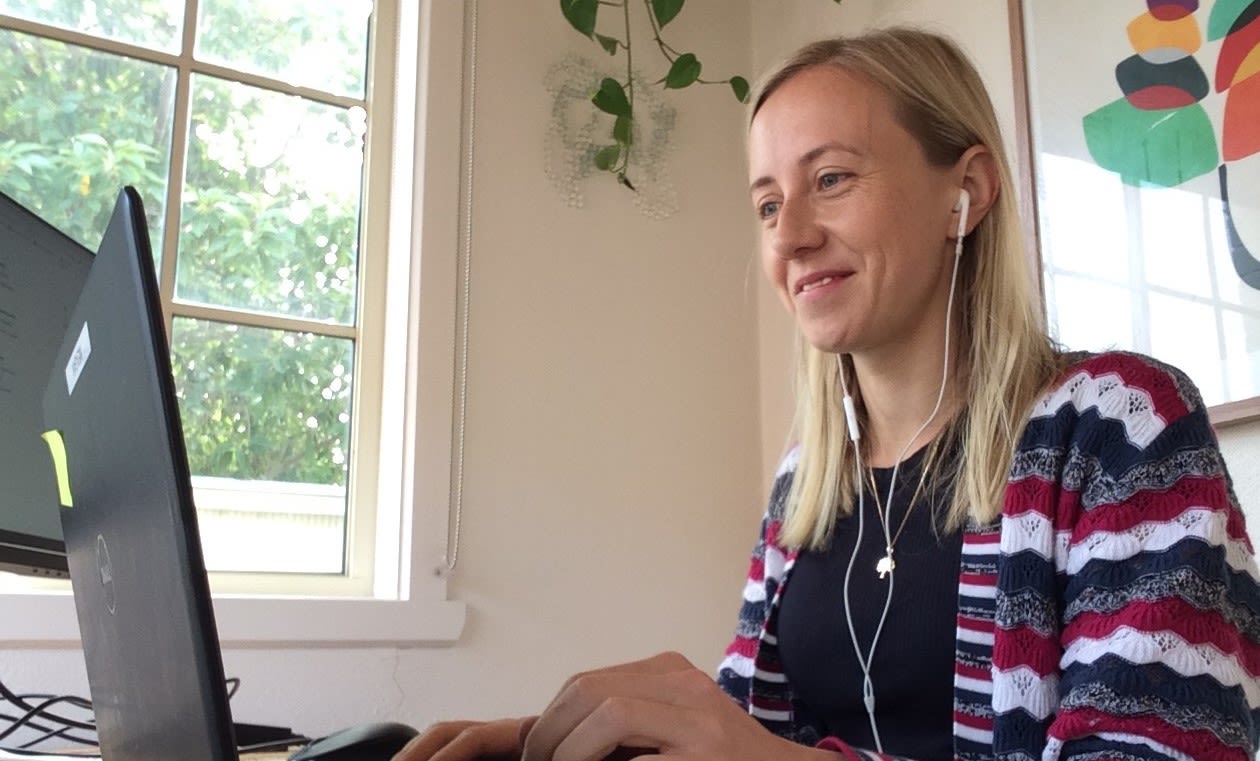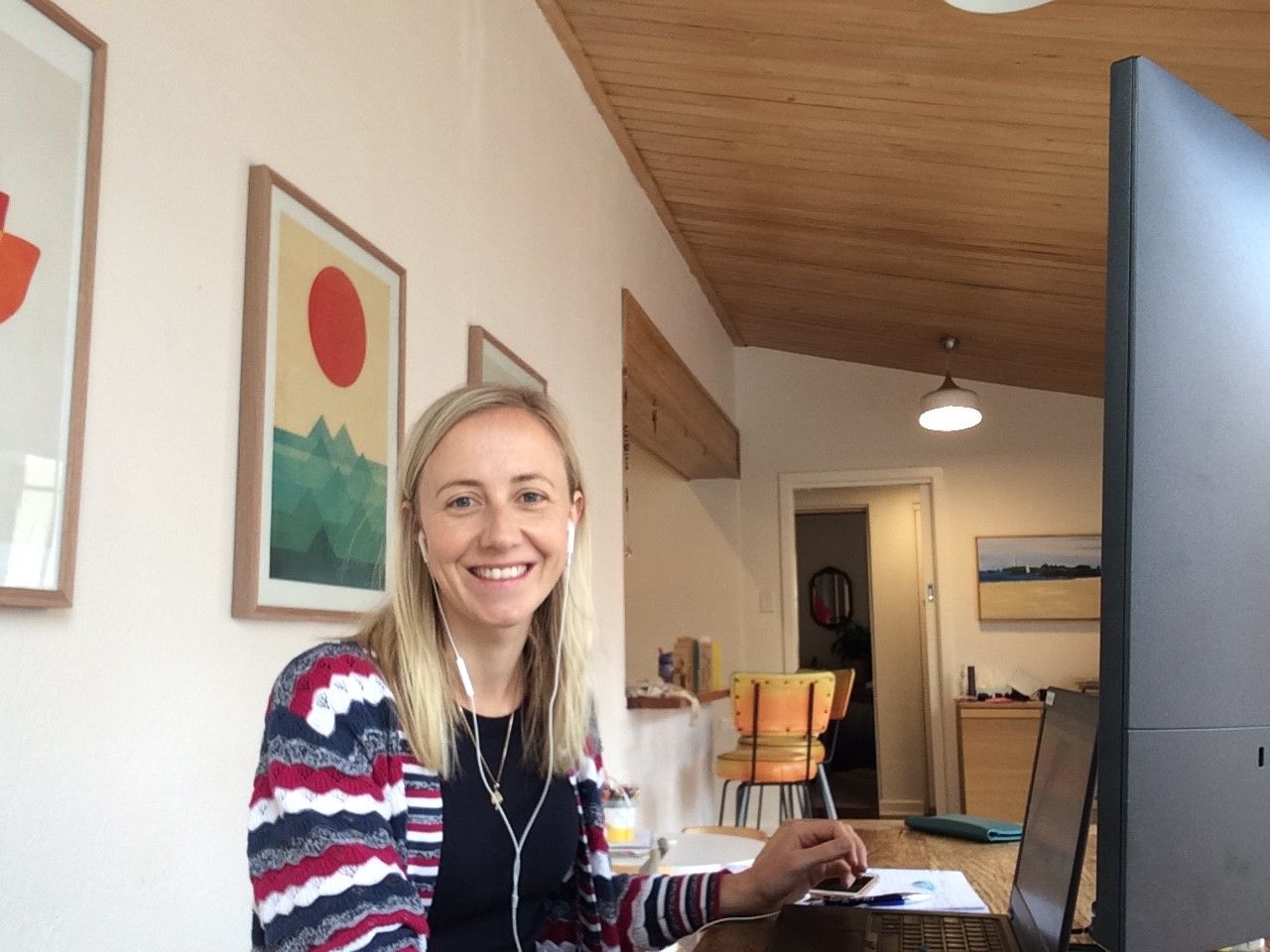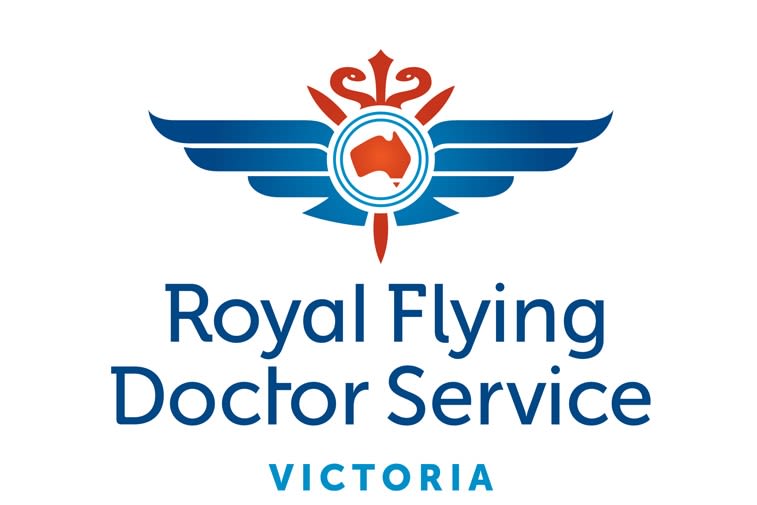Meet Meagan Clark: Program Support Officer - Telehealth
Think the RFDS is ‘just’ planes? Think again. In this series, you’ll meet the many faces of the Flying Doctor and learn about the different and dynamic roles they have.

Telehealth clients may recognise Meagan as the friendly face they see on the other end of the Flying Doctor Telehealth connection.
Meagan is a Program Support Officer, providing administrative, IT and customer service support to the RFDS’ partner practices across rural Victoria, New South Wales and Tasmania, while also supporting our specialists in providing online consultations to clients far and wide.
The service facilitates bulk-billed telehealth appointments across specialties spanning endocrinology, respiratory, pain, addiction, cardiology, paediatrics, geriatrics and psychiatry.
For Meagan, her favourite part of the role is hearing the impact the service has on clients’ lives.
“For most people, this is life changing. Getting into a bulk billed specialist is hard enough in Melbourne, imagine being 400km away?!” she says.
“I love it when we can move things around to get someone in an appointment who really needs it. I love it when we hear back that the specialist was excellent and they felt so grateful and at ease (this happens a lot). I love it when we call a rural facilitator who we have built a relationship with and have a laugh while we are solving problems for them. Our days are full of moments like this.”
While COVID-19 has changed life for all of us, the one thing it hasn’t changed is the need for ongoing medical conditions to still be well-managed.
“Diabetes doesn’t go on hold until after the lock down. Mental health, in some cases, is worse during this time,” says Meagan.
Flying Doctor Telehealth has adjusted to the changing circumstances, modifying appointments – which are usually conducted out of a local partner clinic – to now be able to take place from clients’ homes.
“While we wait [for the specialist] we get to chat. I have met beautiful grey hound dogs, been on tours of people’s houses, seen grandchildren’s artwork on fridges and found out how people are coping in isolation. It’s lovely and my favourite part of my day now,” she adds.
By taking telehealth into people’s homes, the service is ensuring that people living in rural and remote areas are still able to access the specialist care they need, without being at a financial disadvantage or taking an undue health risk by leaving their home.
Meagan mentions one example of a young client who was meant to see a pain specialist recently but – due to a flare up of another condition – they were unable to get in the car and make the appointment. Meagan was able to set them up in their home on a smart phone and the appointment went ahead as planned.
When asked what her message to our donors, who make services like this possible, would be, Meagan ends by saying:
“A huge thank you! I wish I could share the happy, sometimes nervous, always lovely faces that I get to see every day.”


